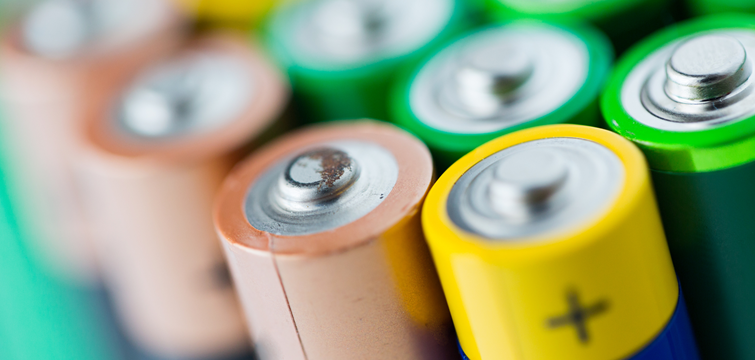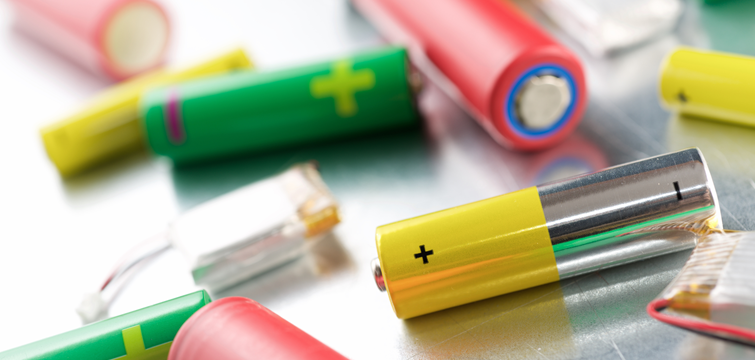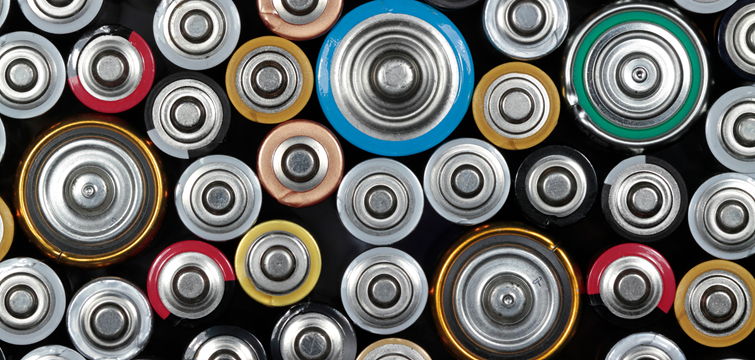A provisional political agreement has been reached by the European Parliament and the European Commission to address the social, economic and environmental impact of all batteries placed on the EU market.
A key aim of the agreement is to improve the sustainability of batteries across their entire lifecycle, and builds on the circular economy and zero pollution ambitions of the EU. The law will have wide-ranging impacts, from reducing the impact of sourcing raw materials for manufacture to the collection, recycling and repurposing of waste batteries.
The commission has stated that from 2024 new sustainability requirements will start to be introduced regarding the carbon footprint, recycled content, performance and durability of new batteries. This is set to be followed by a comprehensive regulatory framework for Extended Producer Responsibility by mid-2025, which will include increasingly higher collection rates for waste batteries in the following years.
The collection targets for portable batteries will rise significantly from 63% in 2027 to 73% in 2030. Batteries used in ‘light means of transport’ will have a collection target of 51% in 2028, rising to 61% in 2031.
There will also be a requirement that all collected batteries are recycled and achieve high levels of recovery, particularly for materials including lithium, lead, cobalt, nickel and copper. Stricter targets for recycling efficiency and material recovery over time will guarantee that valuable materials are recovered at the end of their useful life and brought back in the economy. Material recovery targets for lithium will be 50% by 2027 and 80% by 2031.
Mitigating social and environmental risks
The new law goes far beyond collection and recycling, as companies placing batteries on the EU internal market will have to demonstrate that the social and environmental risks linked to the extraction, processing and trading of raw materials used in battery manufacture have been identified and mitigated.
The EU Commission has stated that battery technology will play a central role in advancing climate neutrality for the EU by 2025 and it is hoped that the new law will foster the development of a sustainable battery industry to support Europe’s clean energy transition.
The European Parliament and the Council will now formally adopt the new regulation so it can enter into force. It will replace the existing batteries directive from 2006 and will be adopted from 2024, becoming fully operational by 2028.
Virginijus Sinkevičius, Commissioner for Environment, Oceans and Fisheries commented “The batteries market is rapidly expanding and with the new EU rules on batteries we will be better prepared for the huge changes ahead, for the green and digital transitions our economy and society are undergoing.”
“These rules will make us less dependent on imported oil and reduce the carbon footprint of our economy. We will increase the sourcing of precious raw materials such as lithium and cobalt from waste batteries, contributing to the security of supply of resources needed for the production of new batteries in a more circular economy.”
Impact on UK producers
UK producers placing batteries on the EU market will be directly impacted by the EU batteries reform. They will need to comply with the new regulations in each member state, as they currently do for the existing regulations.
The UK is also expected to follow the EU battery regulation reform, but to what extent is as yet unknown and it is likely to be aiming to not fall behind the EU too much, rather than pushing further ahead. Due to the Northern Ireland protocol the EU rules will have to be implemented there, so it will make sense if the UK is closely aligned.
The UK consultation on batteries EPR reform is expected in Autumn 2023. If you have any questions about how you may be impacted, please contact our team.

You may also be interested in...

Q3 2023 portable battery collection data on target
By Louisa Goodfellow 19 Dec 2023
Ecosurety divests from WEEE and Batteries compliance
By Louise Shellard 06 Nov 2023
Q2 2023 battery recycling data indicates good progress towards targets
By Louisa Goodfellow 07 Sep 2023
Q1 battery collections data on target
By Louisa Goodfellow 06 Jun 2023
